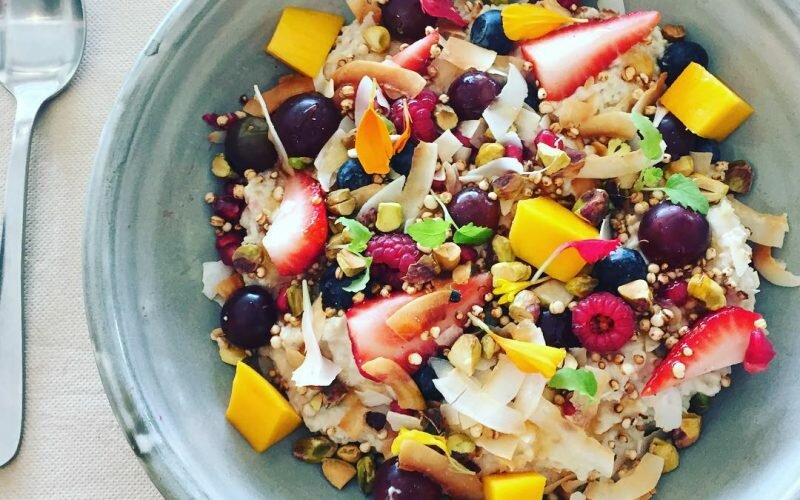While Winter colds and dark days can leave you feeling like an extra bit of snooze time in the morning and you can more easily talk yourself into going straight home to dinner after work, we have a few health and training tips that should help you thrive through the coldest months rather than hibernate.
Eat warm, nourishing foods
Save raw foods for warmer months and focus on dishes that are eaten hot like soups and slow-cooked stews. Certain foods are also considered ‘warming’ in Chinese medicine and help digestion and circulation. These include ginger, cinnamon, oats, quinoa, spelt, walnuts, black beans, coconut and seasonal vegetables such as root veggies and winter greens.
Drink warm drinks, especially herbal teas
Avoid winter dehydration and keep your H20 up in the form of warm drinks. Start the day with warm water and a squeeze of lemon or dash of apple cider vinegar to get your metabolism moving or, make your own ginger tea by slicing pieces of raw ginger and adding boiling water, letting it steep for 5 minutes.. If you’re feeling a little run down, try Green Kitchen Stories’ Ginger & Turmeric Honey Bomb to help give your immune system a boost and ease a sore throat.
Get some vitamin D
Essential for strong bones, muscles and overall good health, however, many of us are deficient in vitamin D during the Winter. If the sun is out on a clear Winters day, try to step outside and soak your face in some rays for 15 minutes. Vitamin D supplements also do the trick (and won’t cost an arm and a leg).
Keep moving
Exercise will improve your mood, boost your confidence and revitalise your energy levels, shaking off feelings of lethargy. If you find you have a bit of a cold, light exercise can assist you feeling better as long as you don’t overdo it. A few workout rules of thumb for when you’re not feeling 100% are below
The ‘neck check’
If where you feel sick resides above the neck i.e. head cold, running nose, sneezing, sore throat – you’ll be okay to keep training but be mindful of how contagious you are. Rugging up for a brisk walk outside is a good option.
Listen to your body
If you decide to train ensure you tell your trainer and decrease intensity to suit. The trainers can add in more stretching (certain stretches and twists helps the body flush out toxins) and avoid heavyweights
Avoid dairy foods
Dairy foods tend to increase the body’s production of mucus which can leave you feeling stuffy and therefore unwell. If you’re a little sensitive to dairy products, try minimising your intake and see how you feel.
Set aside some time to quiet the mind
Whether it be 5 minutes a day or once a week, one of the best ways to manage stress and feel less overwhelmed is learning to quiet the mind with meditation. We’ve mentioned Smiling Mind previously – a tool you can use to help meditate. Meditation is something that most can’t do from the get-go so don’t be disheartened if that’s you – emptying the mind of all the thoughts in your head is quite the challenge! Even the act of giving yourself some time to just ‘do nothing’ and breathe deeply will leave you feeling lighter and perhaps more capable of conquering your to-do list.
Laugh
If you are feeling a little melancholy, watch your favourite happy movie or hang out with people (or babies or pets!) that make you laugh. Laughter increases your endorphin levels, relieves stress, improves your immunity and best of all makes you feel good!
Stretch
As well as assisting with better posture and fewer aches and pains, stretching increases your blood flow and circulation, helping you feel less tired. A few simple, light stretches sends oxygen to your brain for a clearer mind and sunnier moods. Try stretching first thing in the morning to feel more energised.






